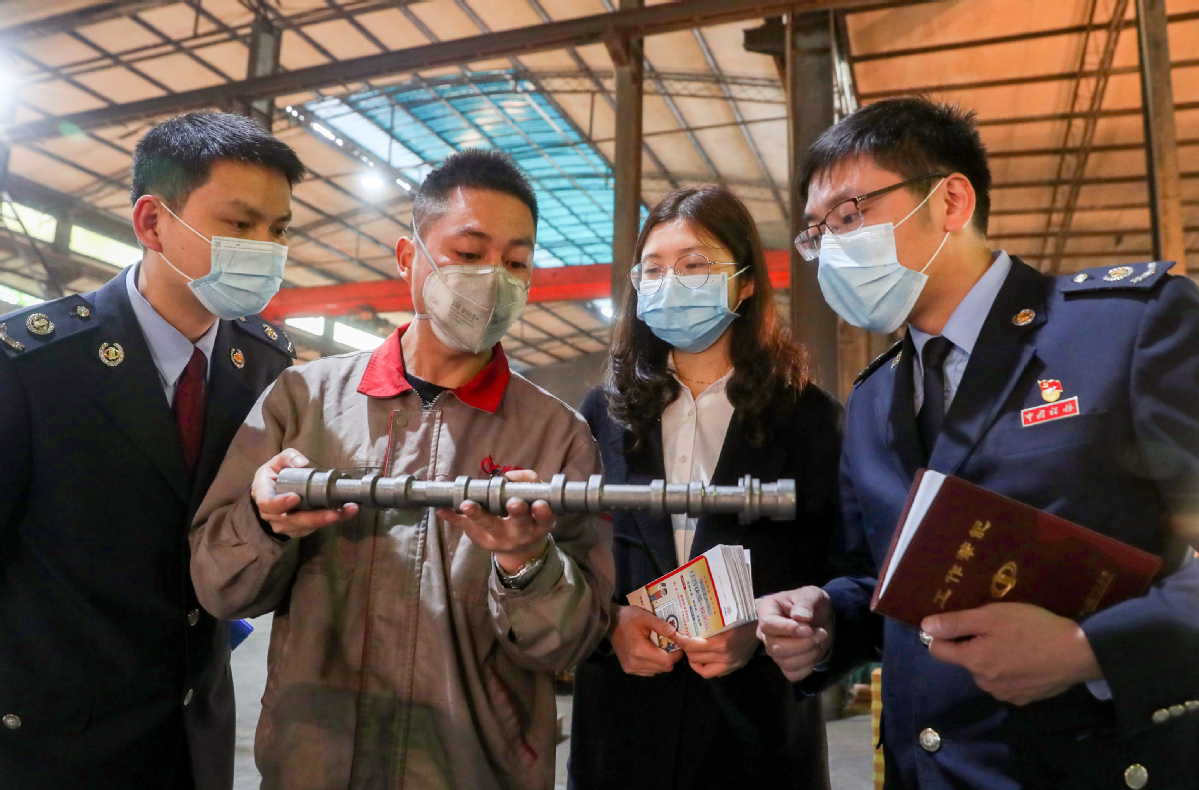PBOC steps ensure credit flow to SMEs
By Chen Jia | China Daily | Updated: 2020-06-09 07:50

The Chinese central bank's measures to support smaller enterprises will help cushion the downside risks in economic activity by facilitating the flow of credit to market entities and ensuring job security, analysts said.
The People's Bank of China, the central bank, launched a set of policies last week to shore up financial services for small and micro enterprises. It announced 30 supportive measures, like lower costs and faster growth of credit while encouraging financial institutions to raise more funds from the bond market.
"We designed the package of policies from a long-term perspective," Pan Gongsheng, vice-governor of the PBOC, said during a news briefing. "Financial institutions should strengthen countercyclical measures and expand credit to secure market entities."
Pan also warned about a possible worsening of the credit asset quality for the next two years, amid the economic downturn due to the novel coronavirus epidemic.
Net financing of corporate bonds this year should be 1 trillion yuan (more than the amount in 2019), while financial institutions should target issuing special bonds of at least 300 billion yuan for supporting small and micro companies as part of the overall measures to augment the working capital requirements of financial institutions, the central bank said.
Zou Lan, head of the financial market department at the PBOC, said that the central bank will also facilitate a mechanism of providing subsidies and rewards for small business loans, and supplement the working capital of government financing guarantee institutions.
"These measures will help to share loan risks through the cofunding of small and micro companies and encouraging banks to be more proactive in lending," said Zou.
China was the first major economy in the world to impose quarantine measures to halt the spread of the novel coronavirus, and was the first to resume business activities after effectively controlling the epidemic. The falling global demand will pose new labor market pressures and income losses could weaken the recovery in domestic consumption, said Zhu Haibin, chief China economist with JPMorgan.
Small and medium-sized enterprises account for 80 percent of the urban employment in China, and they tend to have the most difficulties in obtaining credit during economic downturns. Hence, supporting SMEs is necessary to stabilize the real economy, said Shan Hui, an economist with Goldman Sachs (Asia).
The central government set an annual target of increasing financial support to keep micro, small, and medium-sized business operations stable. In the Government Work Report, it said it will increase large commercial banks' inclusive financing to micro and small businesses by more than 40 percent this year, along with an expansion in the scope of the government financing guarantee and significant reduction of guarantee fees.
The authorities also highlighted the need to tighten financial regulation and prevent funds from "simply circulating in the financial sector for the sake of arbitrage", according to the report. "To support market entities, we must ensure that micro, small, and medium-sized businesses have significantly better access to loans and that overall financing costs drop markedly."
Since June, the rise of benchmark bond yields has indicated that the central bank might increase caution on risks related to financial arbitrage and asset bubbles, as the government has vowed to use financial resources to support the recovery of the real economy and prevent speculation in the financial system.
The PBOC and the banking, securities and insurance regulators jointly announced last week that SME loans that are scheduled to mature this year would get a repayment extension to March 31, 2021, as long as the borrowers promise to keep employment stable. The monetary authority also established two new policy tools to ensure that credit can be directly channeled to SMEs.
























